Wishing away overconsumption without reducing population or affluence is a denial of math.
By Brad Meiklejohn
“It is easier to imagine the end of the world than the end of capitalism.”
– Mark Fisher
I am congenitally cheap. There is Scottish blood in my veins, which may explain why our family crest reads: “Fix it up, wear it out, make it do, or do without.”
I never pass a penny on the sidewalk, I’ve used the same skis for 30 years, I drive my vehicles into the ground, and duct tape is an essential ingredient in my life. I’ve lived in Buddhist monasteries for long periods and even considered ordaining as a monk. The pinched pennies have piled up, allowing me to work less, support charities, and conserve land.

Yet, as hard as I try to reduce my consumption, I cannot. It’s not because I lack self-control. It’s because wealth never sleeps.
Earlier this year I wrote an article about the root problem of human overpopulation. Though the article was well-received, predictably I received pushback. Some of my math-challenged critics contend that overconsumption is the problem, not overpopulation. Even well-intentioned friends maintain that overconsumption is the evil twin of overpopulation.
Are there too many of us or do we consume too much? Most people answer “yes,” though it is fashionable among progressives to blame fat rich white Westerners, not skinny poor brown Global Southerners. Even those who understand that overpopulation is the root cause of our planetary problems espouse moderation of our appetites. As legendary American conservationist Dave Foreman said, we can reduce overconsumption by “hacking fat and sloppiness.”
Consume is what people with money do. Overconsumption is an output of the I=PAT equation (Impact=Population x Affluence x Technology), not an input. Overconsumption results from too many people with too much money. Wishing away overconsumption without reducing population or affluence is a denial of math, hoping that 2 x 3 will equal 4 this time.
Consumption is driven by wealth. Call it wealth, call it capital, call it money – no matter where you park it, so long as your wealth is in circulation, it is driving consumption. Even if you decrease your personal consumption, your money is always quietly chewing away at the world. Your personal restraint in one area only shifts the money elsewhere. Your bank and your retirement accounts will use your money to finance development, your donations to charity will be deposited in another bank, and even tying your wealth up in conserved land keeps your money churning away in someone else’s pocket.
The only way to take your money out of circulation is to burn or mulch it. Who is going to burn their money? Not even Buddhist monks burn their money. They give it away.

For 8 billion humans to live within our planetary budget each of us would have to get by on $5,500 per year.[1] That means living in a 12’x12’ single-room apartment with minimal plumbing, few appliances, no central heat or air con, a local plant-based diet, and no car or plane travel. The 3.5 billion people currently above that standard have no intention of giving it up; the 4 billion below that standard want better lives.
Those who drastically self-restrain have something in common with those who burn their money – there aren’t many of them. Recycling glass, skipping meat, or riding the bus to work don’t count as drastic self-restraint. If you take overconsumption seriously, reduce your income, settle your debts, seek a lower rate of return in the markets, keep all your money as cash under the mattress, join the barter economy, and live on less than $5,500 per year. Still with me?
Perhaps we could rein in overconsumption by government fiat. Let’s imagine the efficacy of government policy that advocates for the destruction of wealth and for lower standards of living. Are you picturing the ensuing chaos, too? Inflation is another wealth-destroyer yet the gears of the modern world work to ward off inflation, not invite it. Not many countries deliberately aim to lower their Gross Domestic Product (GDP), though Bhutan espouses Gross National Happiness. Curtailment of the work week, wealth redistribution through progressive taxation, and intentional degrowth are but fair maidens on the rails of runaway global gluttony.
Some contend that the Scandinavian countries (Sweden, Norway, Denmark, and Finland) are paragons of virtue because they consume less than they produce. Yet the Scandinavian countries are among the top nations in “spillover impacts” that extend beyond their borders. It doesn’t matter how frugal the Nordic people are: so long as they are rich their money is eating away at the world. Iceland has the highest per capita ecological footprint in the world because they import nearly everything. No one lives on an island anymore: our money travels the globe with an ax, shovel, hammer, and a hungry mouth.

The handy thing about scapegoating overconsumption for our worldly woes is that we get to blame someone else. It’s that greedy, lazy, selfish, fat, and sloppy guy with the Hummer, the McMansion, and the beer gut who is the problem. Gloat about your hairshirt sacrifice and self-flagellate over the extra pint of Ben and Jerry’s all you want. Your performative blaming and shaming isn’t going to do the job when the job calls for reducing total global economic activity by 50%. We are not going to jawbone our way out of overconsumption.
By all means, reduce your consumption if it makes you feel good. But don’t delude yourself that it will make a real difference. Choices do matter, and some choices are clearly better than others – it’s just that we can never escape the economic consequences of our choices. I prefer walking over driving, yet the money I save squirts out somewhere else. Investing in land conservation is commendable because it takes land out of the global economy, but my money doesn’t stay in the ground – it keeps cycling away long after I close the deal.
Consumption levels keep rising worldwide. The world’s current material footprint of 100 billion tons per year is projected to rise to 160 billion tons per year by 2060. Certainly we are on the verge of kissing fossil fuels goodbye, right? Actually, no. Despite our concerted efforts to move away from fossil fuels we keep using more of them. We are trapped by Jevons Paradox wherein increased energy efficiency leads to increased energy consumption.

Overconsumption is indeed a problem – there just isn’t much we can do about it. Here is the conundrum:
- rich people consume more than poor people;
- poor people want to be rich;
- rich people want to stay rich;
- no one deliberately destroys their wealth; and
- intentional wealth destruction is not a viable public policy.
It is more likely that catastrophic world events will destroy our wealth before we do it ourselves. Every day it gets easier to imagine the end of the world than the end of capitalism.
Once we dispel the fantasy that overconsumption can be constrained in any meaningful way, we are in a better position to talk honestly about overpopulation. We can simply say that overconsumption is one of the many woes caused by too many people, along with climate chaos, habitat destruction, cutting, burning, shooting, and otherwise trashing the planet. Even if we could wave a magic wand to reduce consumption, there would still be 8 billion people hacking away at the world.
My ace in the hole is that I never had kids. Not having kids is a single decision; dialing back consumption is a daily grind. By not having children you head the problem off at the pass. You don’t have to concern yourself with the choices of your children and their children and their children ad infinitum. Once you have a kid, the genie is out of the bottle and there is no telling how many kids they might have. Having two kids in the United States will swamp your voluntary carbon reduction by a factor of 40x. The data are in: our climate is going haywire. Choosing to be childless is the single best move you can make to address climate chaos.
Don’t mistake the focus on overpopulation as another form of racial hegemony. If you have followed the plot, you understand the urgency of driving down the population of the profligate wealthy nations. I don’t only mean the United States: among the leading fat cats are Qatar, Luxembourg, Bahrain, Singapore, Saudi Arabia, Ireland, and the United Arab Emirates. The developing world doesn’t get off the hook either, since it is here that rapid population growth is fueling economic growth as poor nations strive to become wealthy ones. Who wants to tell poor people they can’t be rich like us?
Reducing the number of people is the only viable way out of our predicament. Some have argued that population declines can’t happen fast enough to save the planet. We could achieve rapid reductions in population and consumption if, beginning today, each family had no more than two children, with many choosing only one or none. If the total fertility rate[2] fell to 1.5 by 2030 (it’s currently ~2.3) we could halve the planetary burden within a century.
The good news is that more people are choosing smaller families and total fertility rates are in decline. The bad news is that there is still a powerful demographic momentum that adds 70 million people to the planet each year. The ugly news is that certain influential people are sowing “birth dearth” panic to stave off the decline of human numbers sometime in the distant future.
The birds and bees I know can’t wait that long.
—
BRAD MEIKLEJOHN is an Alaska conservationist and writer who has received numerous awards. His most recent book is The Wild Trails.
[1] The same math shows that the world could support ~800 million people at the American standard of living of $55,000 year.
[2] Total fertility rate refers to the average number of children a woman would have over her lifetime.


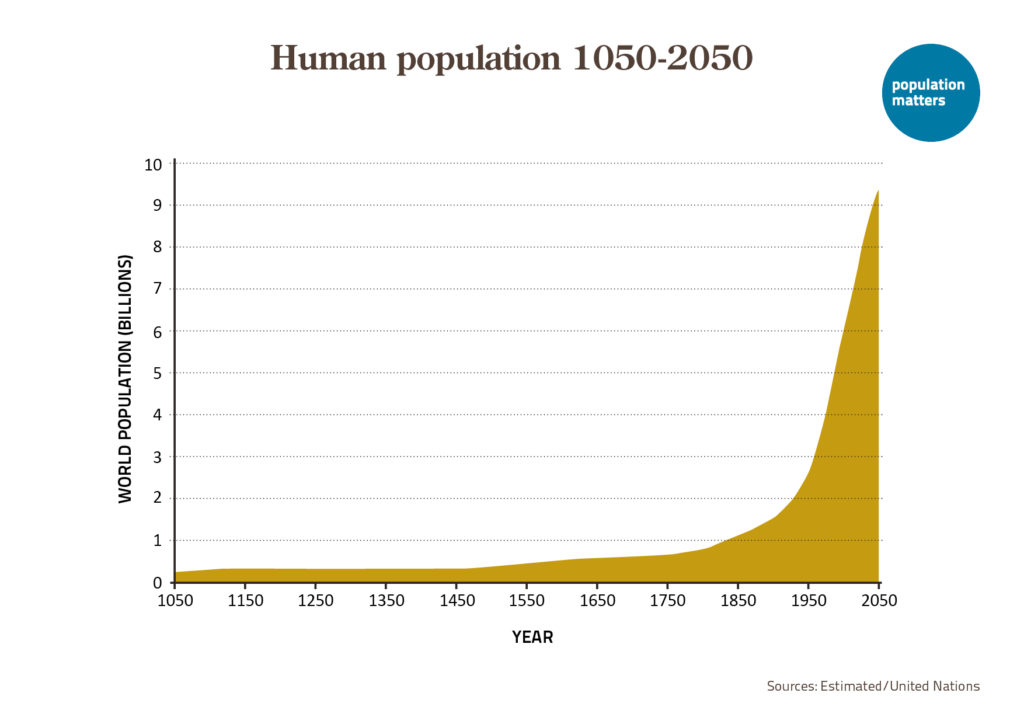
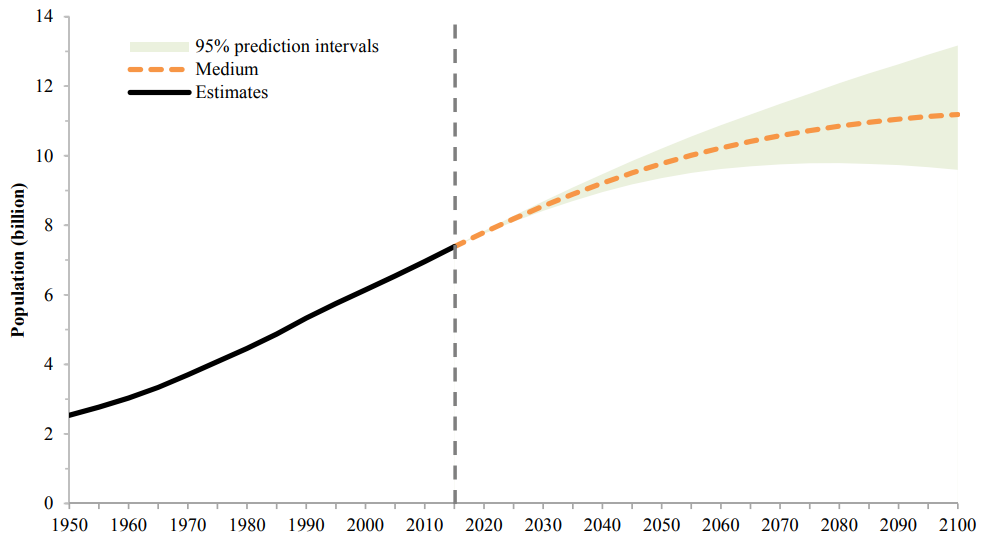
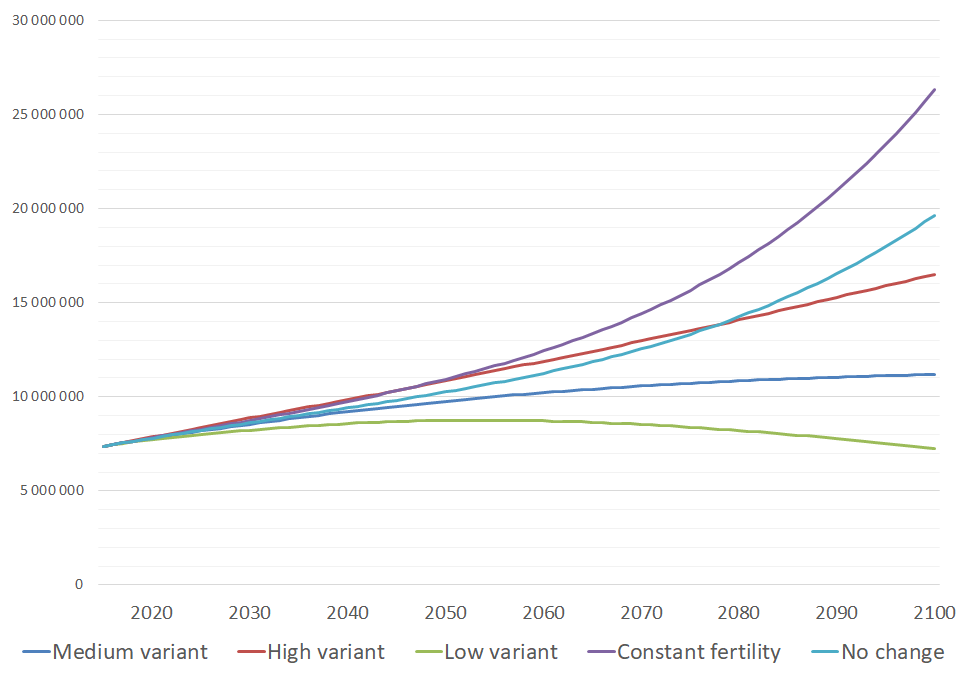
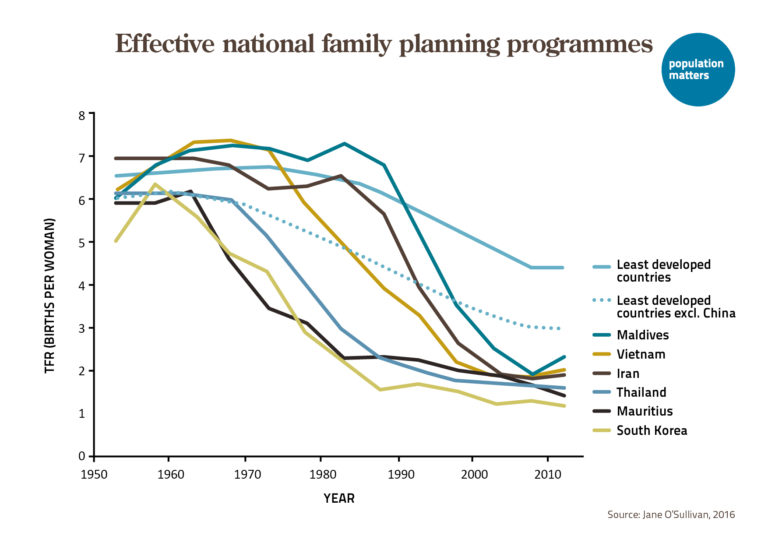

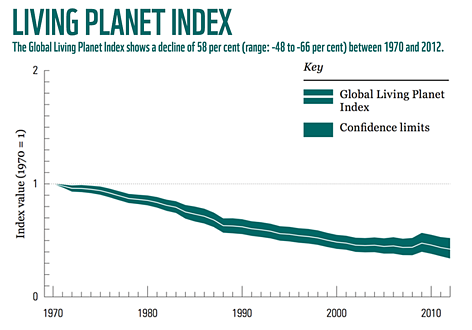
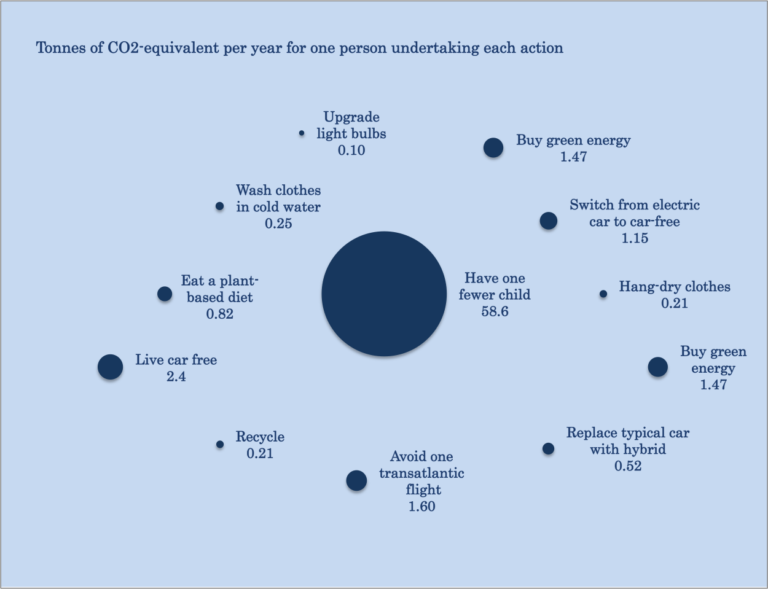
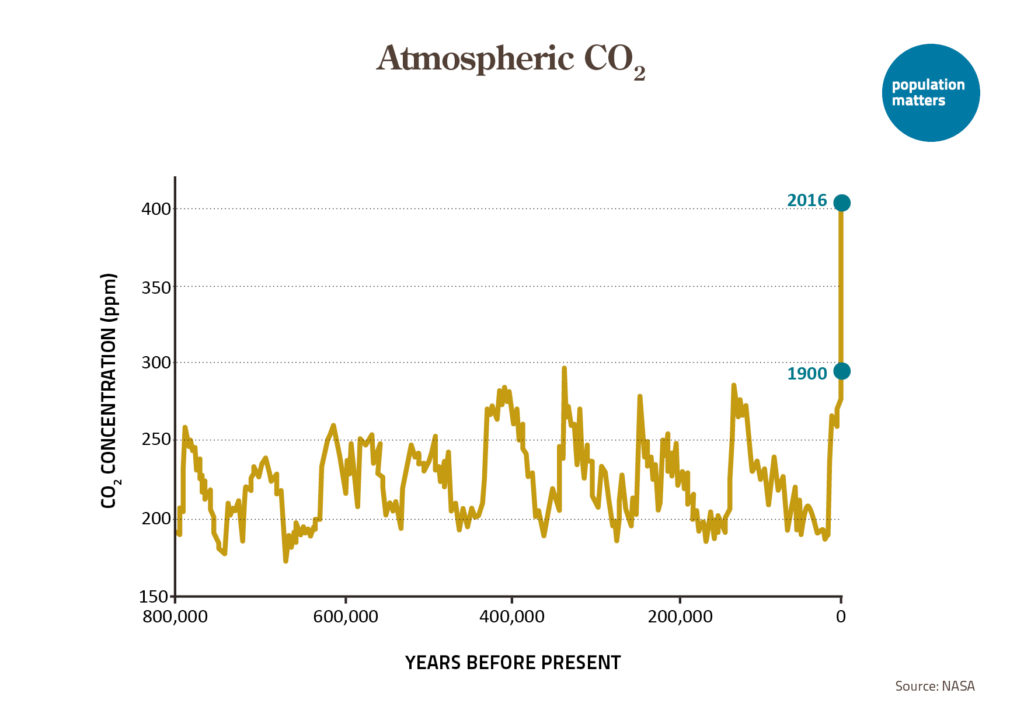
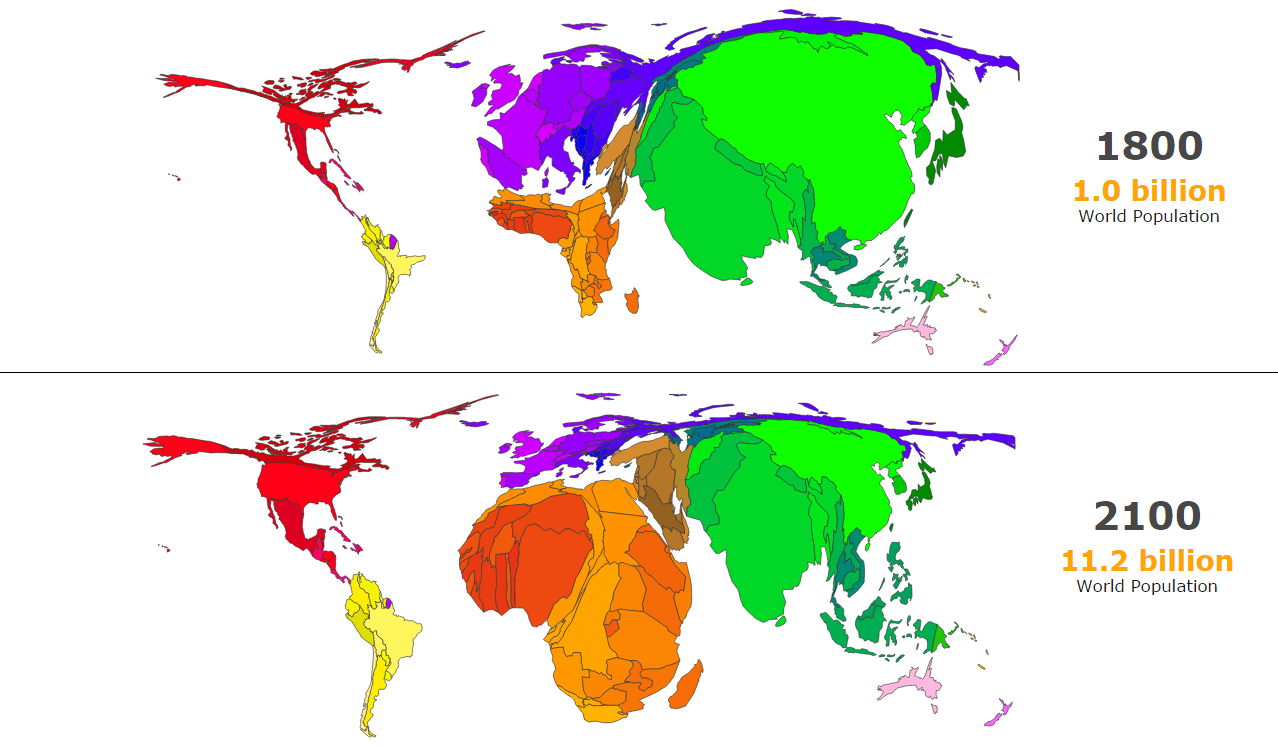
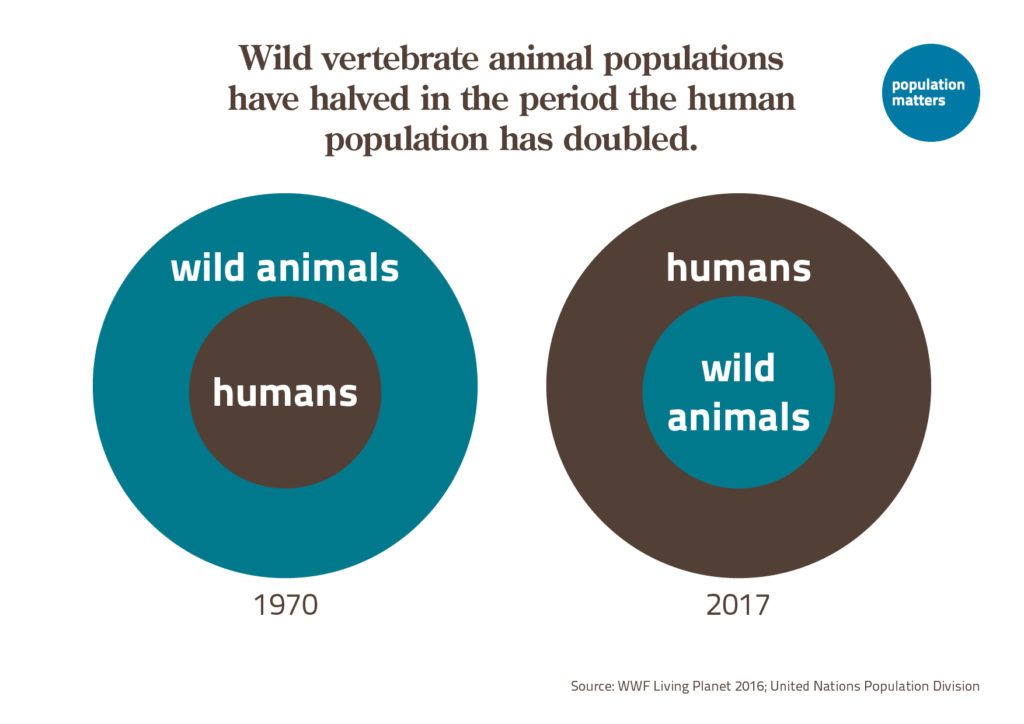
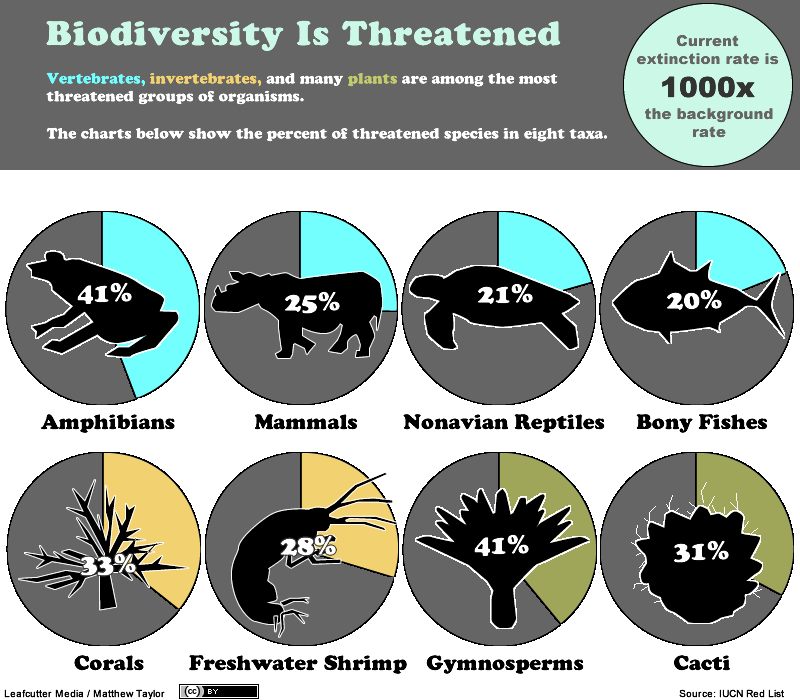
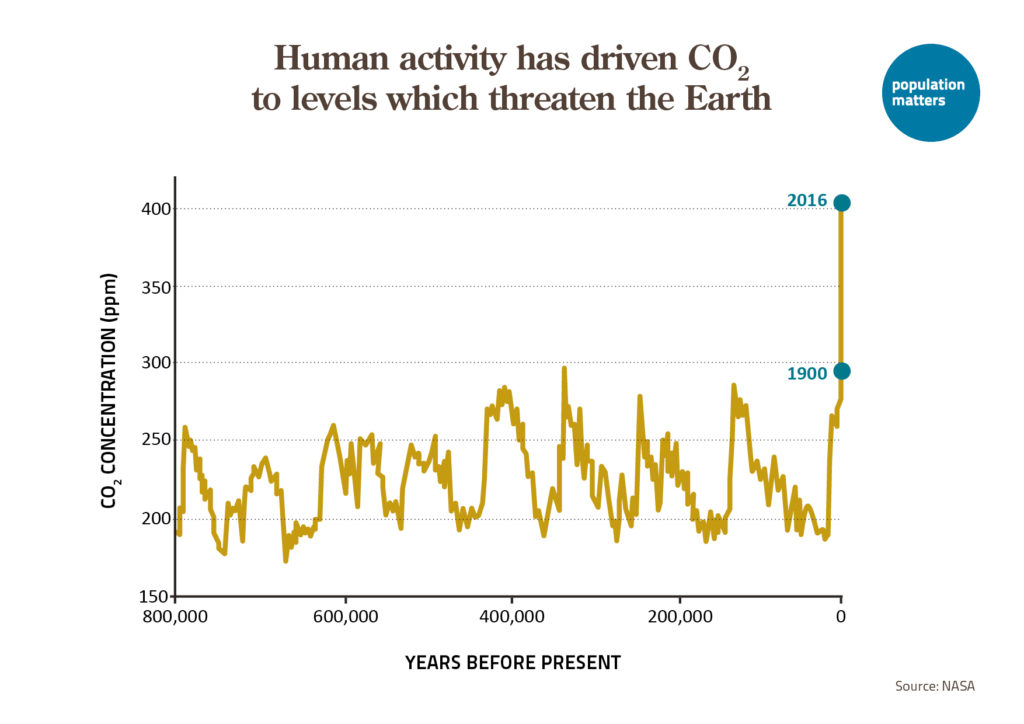
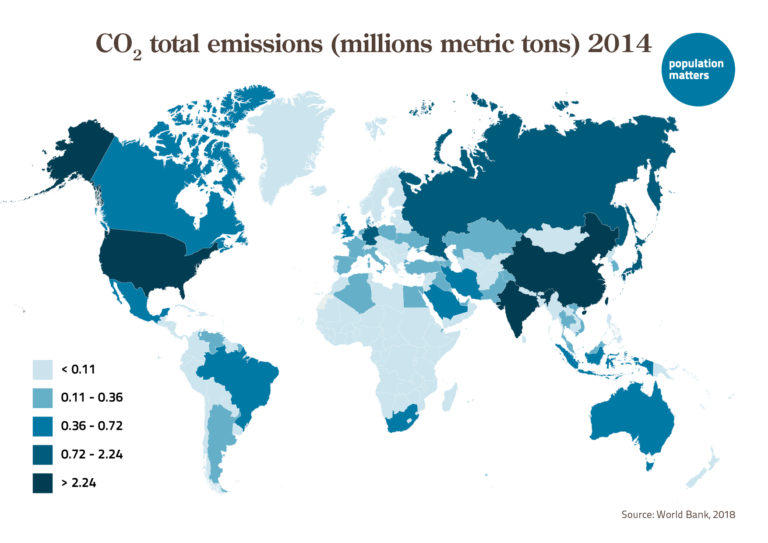

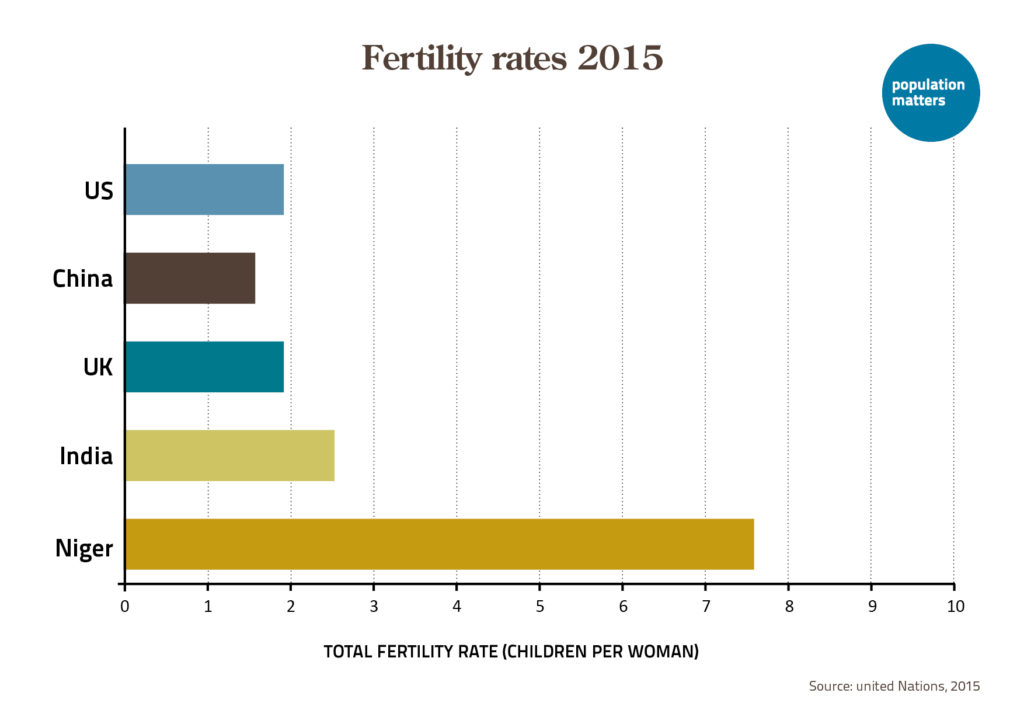
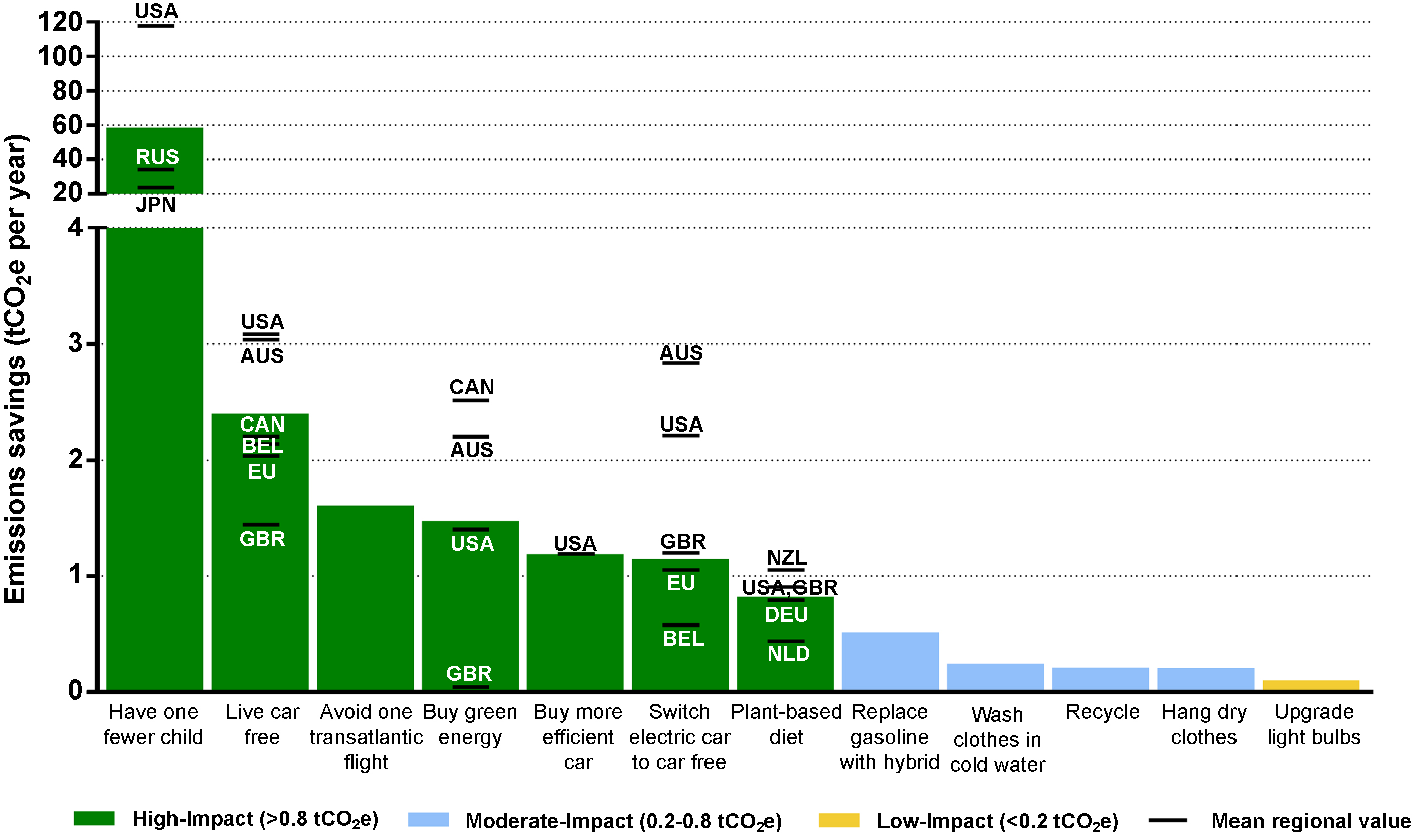



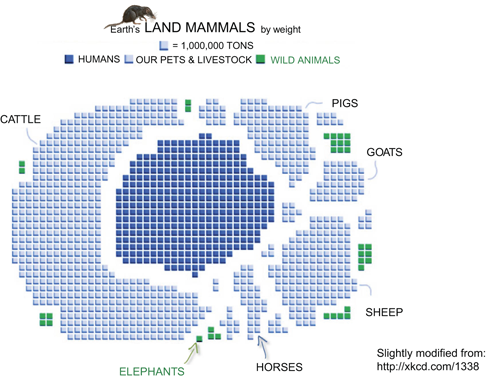

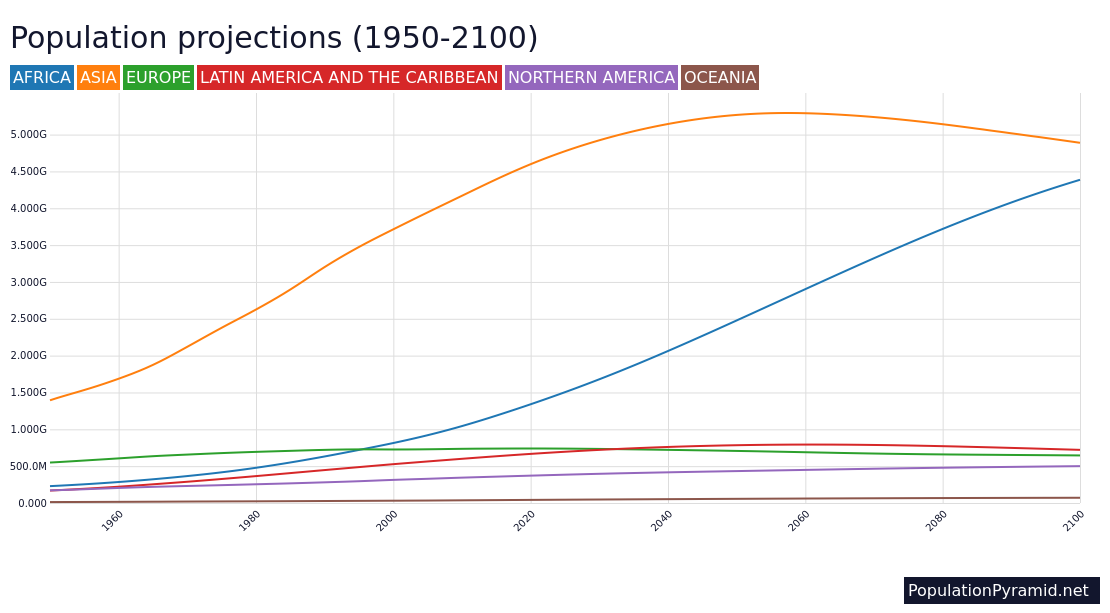
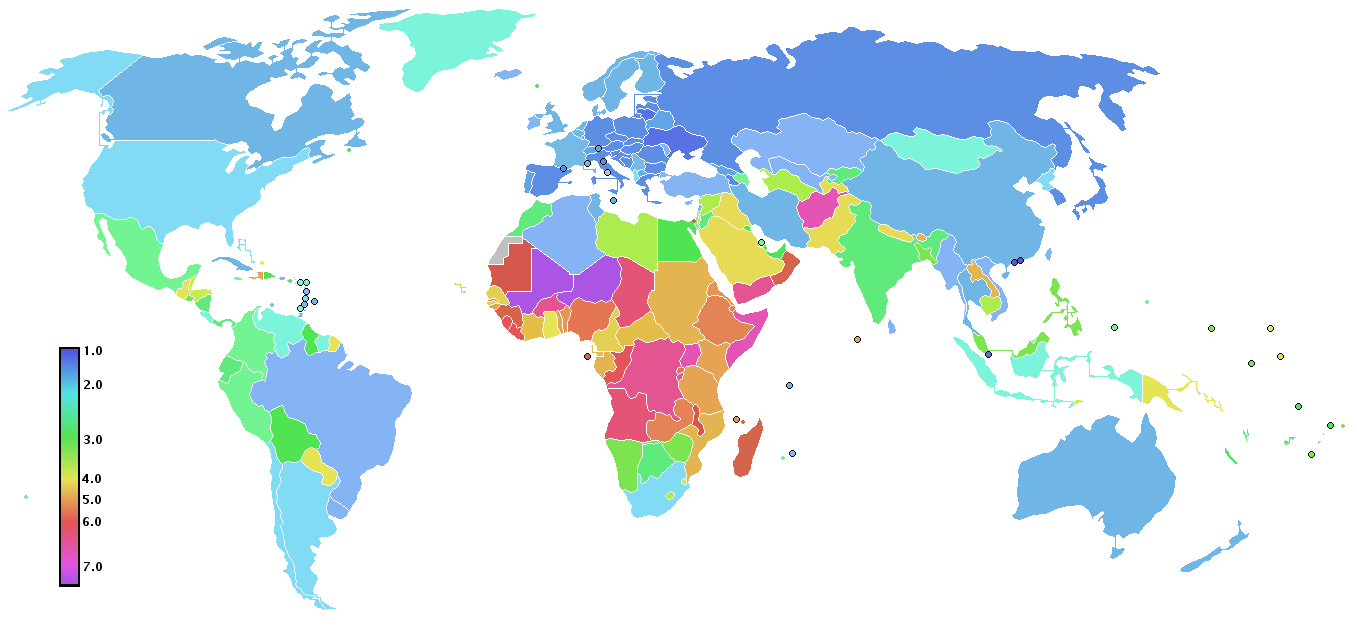
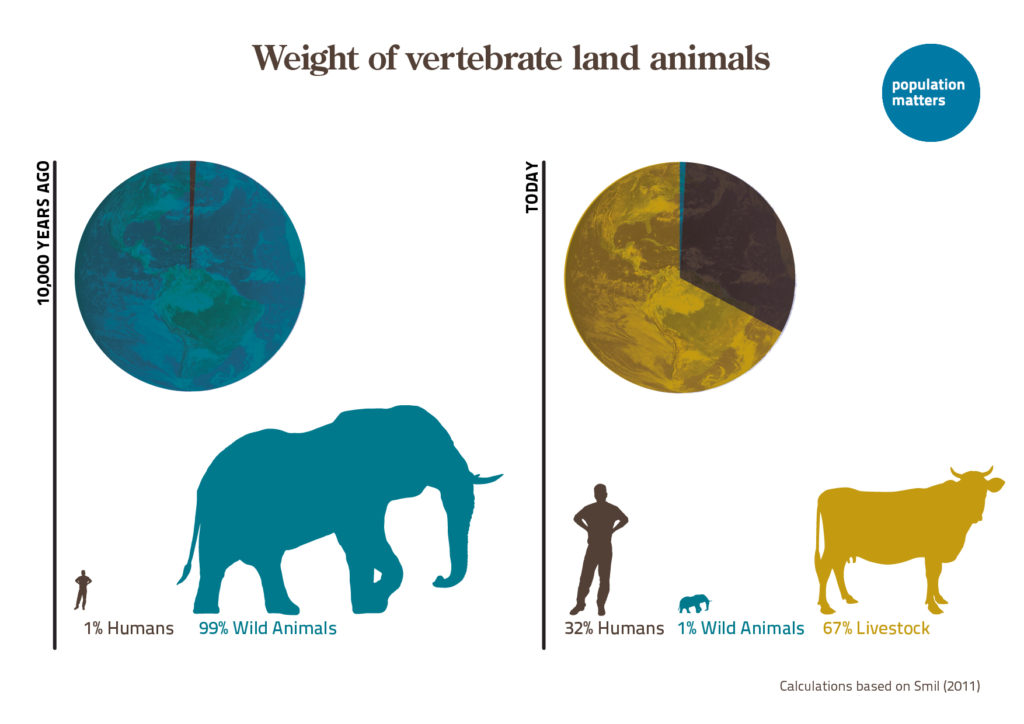

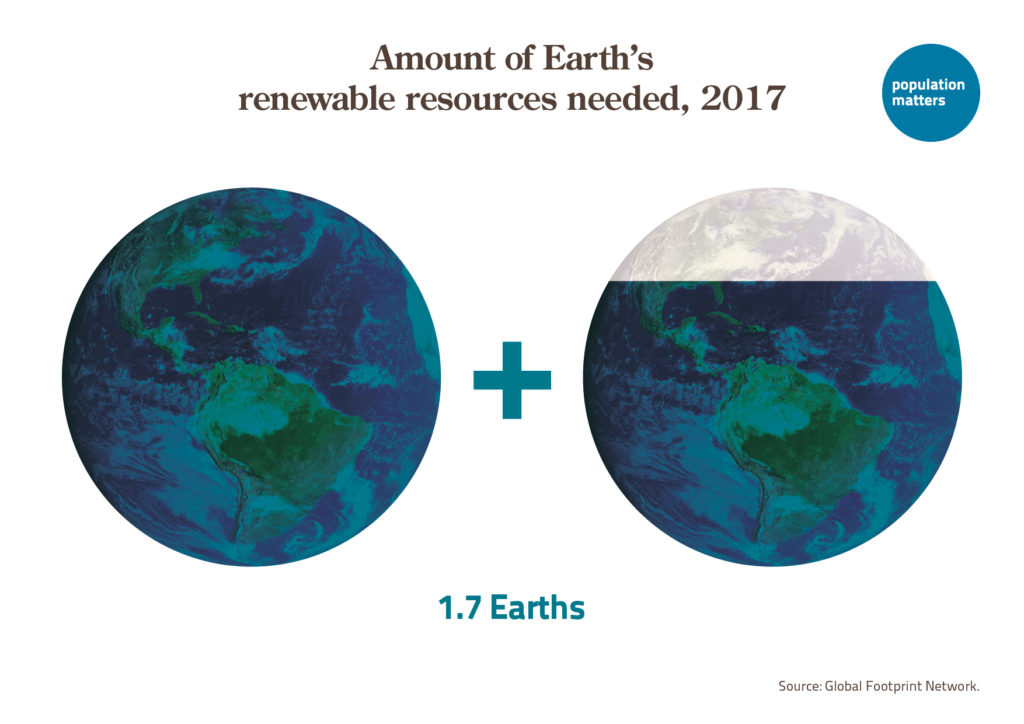


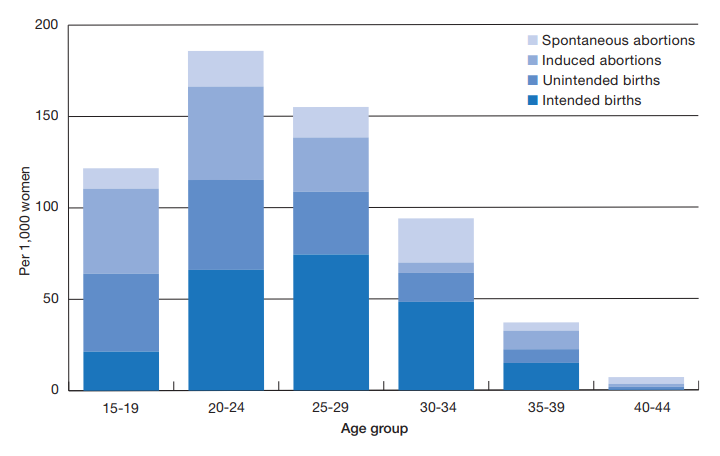
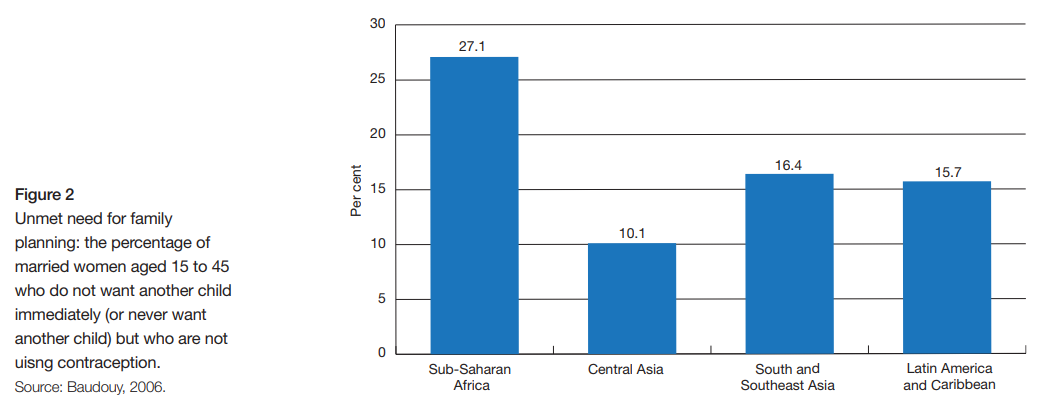
Leave a Reply